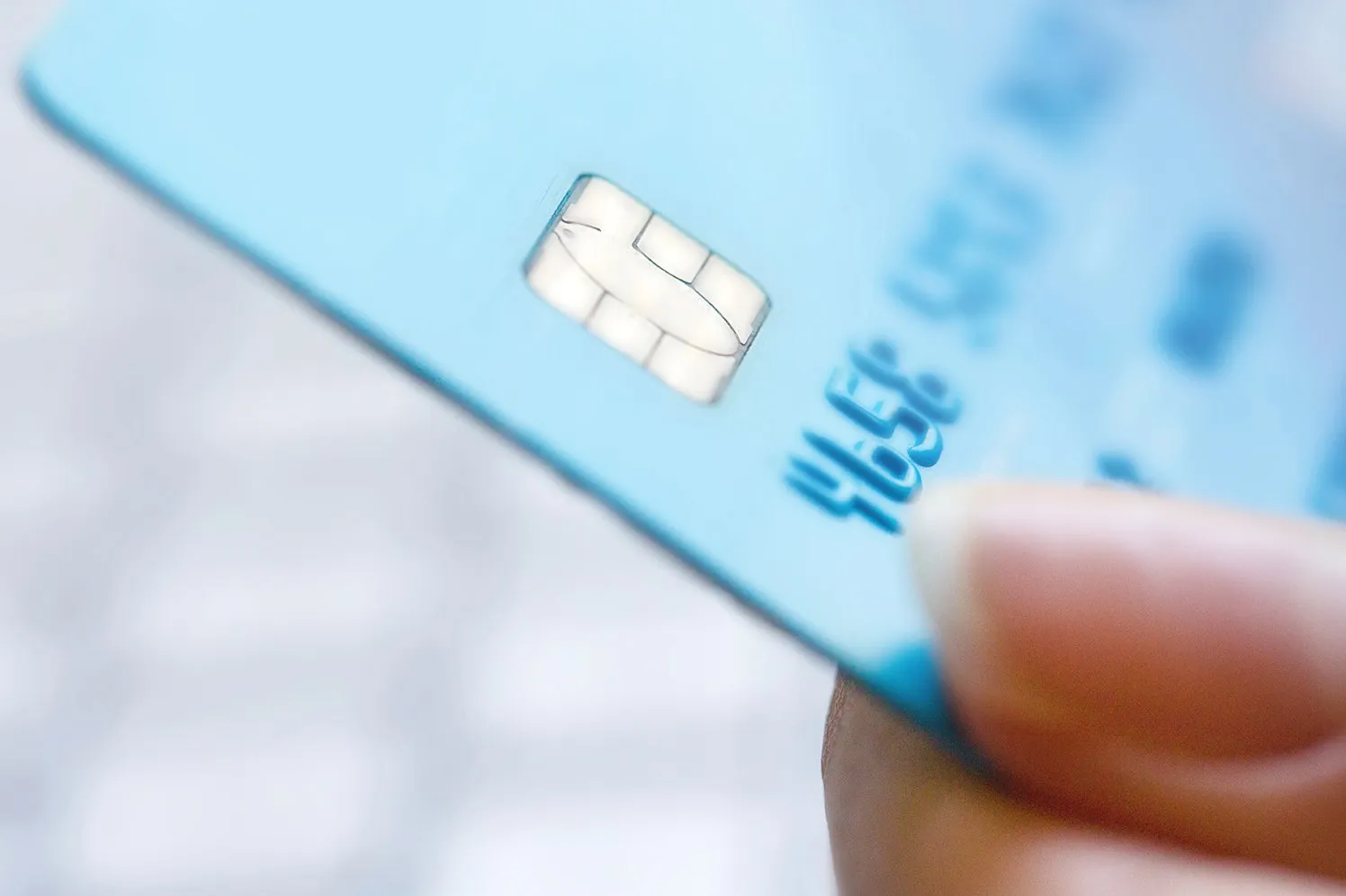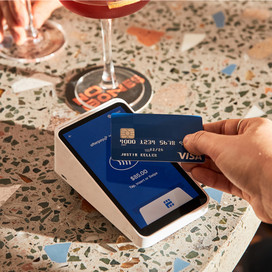Card processing fees are the fees a merchant pays for each credit or debit card sale. This fee is predetermined by your merchant services provider and usually involves three components: interchange and scheme fees, assessment fees and the payment processor’s markup.
Who decides on credit card processing fees?
Generally, there are three parties involved in credit card processing: the card issuer, the card network and the payments processor.
The card issuer is the bank or financial institution that issues cards directly to consumers. ANZ, NAB and Westpac are examples of card issuers. The card issuers partner with networks such as Visa and Mastercard on credit and debit cards. For each card transaction, the card issuer charges a merchant a commission for the ability to accept the card – typically, a percentage of the transaction amount.
The payments processor is the financial institution that works in the background to process and complete a credit or debit card transaction.
What goes into average credit card processing fees?
Many factors determine how much you may ultimately pay, including PCI-compliance fees, annual account fees and chargeback fees (which we go into below). For Australian businesses, the real cost of accepting credit cards can often be higher than what it first may seem, particularly when you account for any hidden fees and contracts. So it’s important to educate yourself before you decide how you’re going to process card payments at your business.
Square has fair, transparent pricing so you know exactly how much you’re paying to process credit and debit cards. For in-person payments it’s a simple flat fee of 1.9% (1.6% on Square Terminal). And for keyed-in or card-not-present payments (such as Square Online or Invoices) a simple flat fee of 2.2% applies. There are no monthly or hidden fees or long-term contracts. PCI compliance, customer support and fraud prevention are included in the rate too.
Another benefit of using Square is that we charge the same rate for all major credit and debit cards, including American Express. That way you can accept any payment method your customers prefer – all for the same simple rate. With other POS solutions, you’ll find that card processing fees can vary from card to card.
Credit and debit card fees that affect rates
Interchange Fees
Every time a customer uses a credit or debit card to pay, there’s a fee that is paid from the acquiring bank (merchant account) to the issuing bank (customer account). It’s called an interchange fee.
Interchange fees are set by each network. You can see Mastercard’s and Visa’s interchange rates on their websites. They are subject to change regularly.
The purpose of interchange fees is to help the card-issuing bank cover things like the risk of approving the sale, fraud and handling costs. So it shouldn’t be surprising that the factors that influence these rates relate in some way to the risk taken on by the card issuer.
These risks include:
- The card that’s used: Debit cards with PINs are lower risk than credit cards, so they typically have a lower interchange rate. And rewards cards (travel and frequent flyer points, etc.) and business cards typically have higher interchange rates.
- How the transaction is processed: In-person card present transactions at the point of sale (POS) typically have lower rates compared to card not-present (CNP) transactions. These cover online, over the phone, invoices, or mail order payments.
- The amount being charged: Merchants with small transaction sizes and a high volume of sales may qualify for lower interchange rates to help reduce their costs.
- The type of business: Every business that accepts credit card payments has a merchant category code (or MCC), a four-digit number that’s assigned to them by the acquiring bank or institution. The MCC is used to classify businesses into market segments that simplify reporting.
The MCC also influences how much a bank or institution charges in interchange fees. Business types that are considered “higher risk” (like financial services, travel, gambling and hospitality) often have to pay higher interchange fees.
Note that American Express serves as both the card network and the card issuer and their fee structure varies from the interchange fees we’ve talked about. But if you use Square, we have the same processing fee for all major credit cards, including American Express.
Dues and assessments
Payments processors such as Mastercard, American Express, eftpos, JCB, and Visa also collect fees, called dues and assessments, for the use of their card brands as well as the ability to process transactions through their payment networks. Square is required to give a percentage of the amount collected from your customer to these associations.
Assessment fees are different from interchange fees in that they’re charged based on total monthly sales and not individual transactions. They’re typically lower than interchange fees. But the amount you pay in assessment fees varies by network and depends on things like whether the cards used were credit or debit, transaction volume, and whether foreign transactions were processed.
Similar to interchange fees, networks review their assessment fees regularly. You can check your monthly credit card statement to see if there are changes to your assessment fee.
Payments processor’s fee
A payment processing fee is what you pay your card processor for use of the product. Typically, this fee is charged per transaction, in hidden fees, and monthly fees.
Square doesn’t have monthly or hidden fees and it has the same processing fee for all major credit and debit cards: 1.9% per tap or insert and 2.2% for each keyed-in or card-not-present transaction.
Our flat payment processing fee includes any fees incurred by interchange, as well as additional dues and assessments or other fees that come from processing cards such as American Express.
Other miscellaneous credit card fees and costs you might be paying
| Types of Fees | What Is It? | Square’s Fee |
|---|---|---|
| Payment Gateway | The conduit that passes money between your merchant account and your payments processor | Free |
| PCI Compliance | The security standard all businesses that accept credit cards must comply with | Free |
| Chargeback | The fee incurred when a customer issues a chargeback for a payment | Free |
| POS software (monthly SaaS fees) | The amount you pay monthly to use your POS software | Free |
| POS hardware rental | The monthly costs to rent your POS terminal hardware and other accessories associated with your POS hardware | N/A |
| Batch fees | Charges for the settlement/closing out of your deposits each day (also called batch header fees) | Free |
| Hosting fees | Fees charged for traditional server-based POS systems | N/A |
| Wireless access fee | A fee that can be charged for using a cloud-based POS terminal vs. a traditional phone line | Free |
| AVS | The Address Verification System is for keyed-in transactions and matches a customer’s billing information to the card on file, incurred on a per-transaction basis | Free |
| Monthly statement / support / service fee | Some payment processors charge a flat monthly fee for support-related services, including the preparation and mailing of your monthly statement, as well as general customer support | Free |
| Monthly minimum fee | The fee between your monthly GPV (card dollars processed) and the agreed-upon monthly minimum | Free |
How can you reduce credit and debit card transaction fees?
There are a number of ways to reduce your card transaction fees. Here are a few:
When possible, accept cards in person.
Online, keyed-in, invoiced or mail-order transactions (also known as CNP or card-not-present transactions) have higher processing fees than in-person (POS) transactions because they’re more susceptible to fraud. Try to accept cards in person whenever possible if it makes sense for your business.
Reduce your risks of chargebacks.
If your business incurs a lot of chargebacks (when a customer disputes a charge from your business and asks the card issuer to reverse it), banks consider you a higher risk and may hike up processing fees. So it’s important to take steps to reduce your chargeback risk. Note that with Square, there’s just one flat fee for CNP transactions and another simple flat fee for in-person transactions – so you don’t need to worry about getting charged a higher rate.
Require a minimum amount for credit card sales.
To offset processing fees, many businesses (especially those that tend to handle smaller transactions, for example a cafe or food market stall) choose to require a certain dollar threshold before they accept credit cards. Depending on what makes sense for your business and what is realistic for your customers, you might consider setting a minimum card transaction amount of $5–10. Make sure that the minimum is clearly displayed and communicated to avoid unnecessary confusion at peak coffee hour.
Square’s card processing fees are simple and transparent. There’s just one low rate for every type of card and dollar amount. We never charge any monthly fees, PCI-compliance fees, cancellation fees or POS software fees. It’s all included in our rate. Learn more about Square’s payment fees or > Watch the video.
Credit cards with low processing fees
There’s a wide range of card processing fees. Fees are dependent on card functionality (debit, credit) as well as the card distributor (American Express, Visa, Mastercard, eftpos). Often credit cards are more expensive to process than debit cards. A debit card tends to be less expensive to process because its funds are available and verified right away, so there’s lower risk.
FAQ about our rates:
How does Square offer credit card processing with no monthly fees?
We believe credit and debit card processing should be as simple and transparent as possible. That’s why we offer clear pricing that includes everything you need to securely process credit cards at your business.
What can I save in credit card processing fees?
If you sell above $250,000 per year and have a consistently high transaction size, your business may qualify for a competitive custom rate from Square. Contact our sales department to learn more.
Payments are just the start
Square helps take care of the day-to-day stuff, too. From point of sale to payments, we have all kinds of services to help you save time and run more smoothly.
This article is for informational purposes only and does not constitute legal, personal, or tax advice. The information contained herein is subject to change and may vary from time to time. For specific advice applicable to your business, please contact a professional.
![]()














